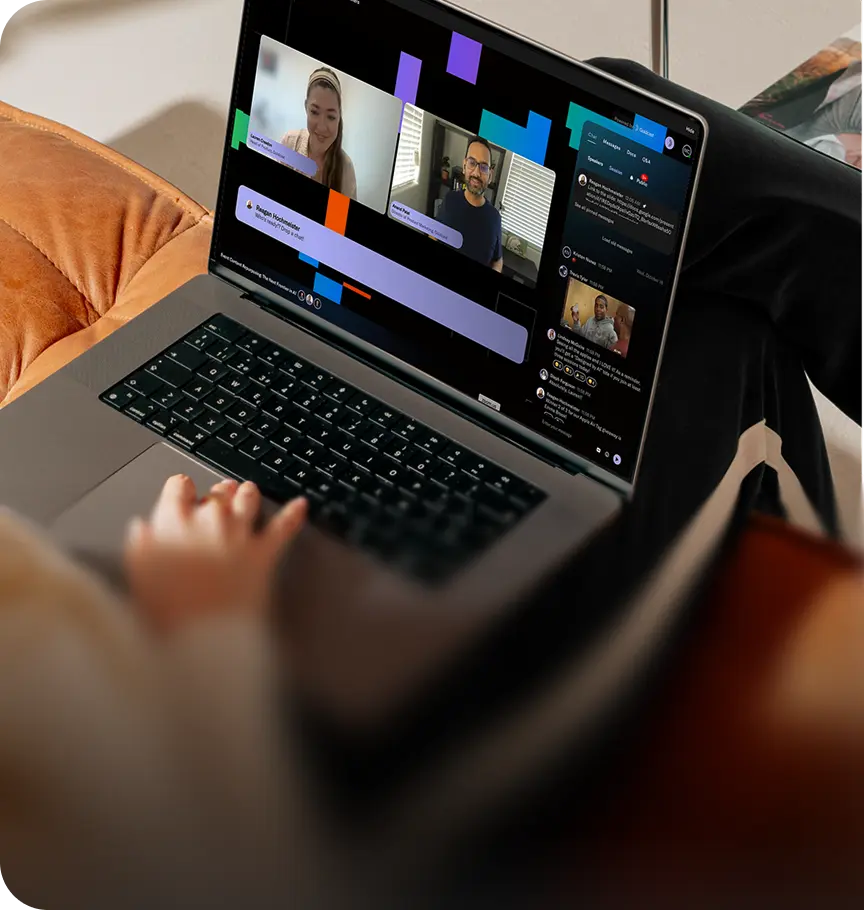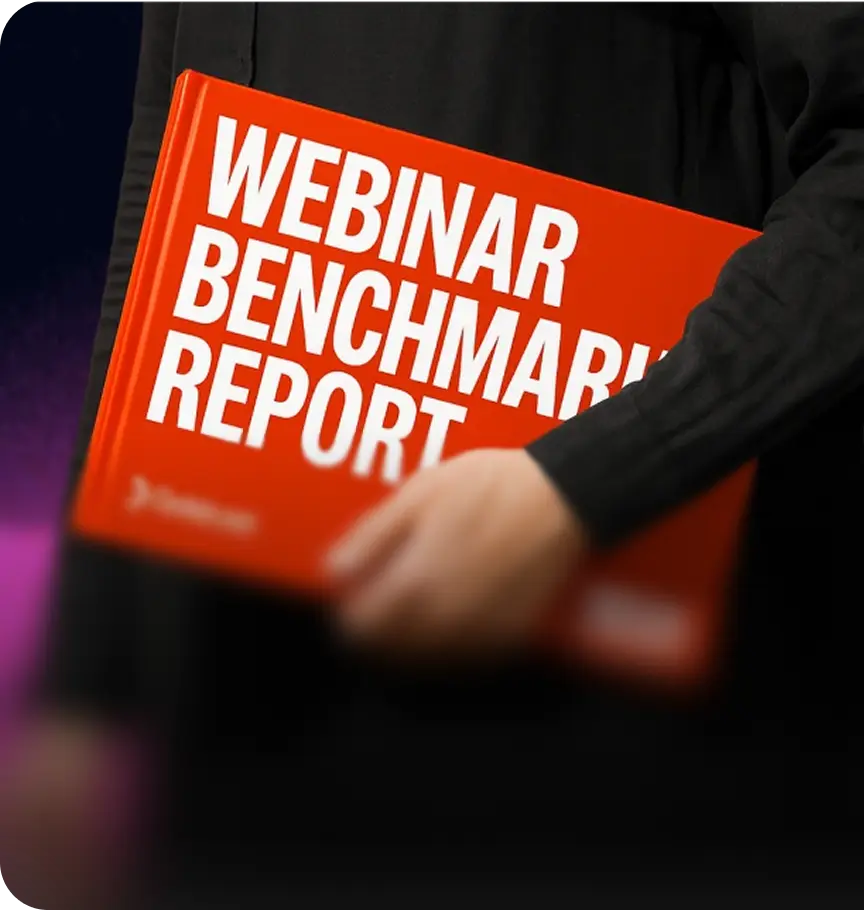Event Marketers are Built to Put Out Fires: Meet Whitney Klepadlo from Robin

Maximize Your Marketing ROI
Join 10,000 other marketers already getting the best tips on running engaging events that boost pipeline and create raving fans.
Welcome to Event Marketers Live, a fast-paced series where we shake off the jargon and get real with the humans behind the scenes of our favorite B2B events and experiences.
In this episode, Kelly chatted with Whitney Klepadlo, Global Events & Field Marketing at Robin.
Whitney is a passionate Event Marketer with an impressive portfolio of experience in the field. Whitney has led some of the best marketing teams and has established a best-in-class events marketing strategy. She’s “an event marketer at her core.”
Want to join the conversation? Register for our next Event Marketers Live event!
Here are the Top 3 Takeaways from this episode ⤵️
Takeaway 1: As an Event Marketer, you must know how to enable the sales team
Field Marketing is responsible for generating pipeline. It’s essential to understand what's going on from the sales team's perspective and where they are coming from. This becomes easier if, like Whitney, you have a sales background. With a higher level of empathy, you can be a better communicator with the sales team.
First and foremost, figure out how to enable and empower sales. Too often, as marketers, we can get inside our little marketing bubble, where we are certain that this is what needs to be done. However, it’s good to take a step back and think, “How is this actually enabling sales?”
Next, focus on developing processes that create a partnership instead of having the two departments bumping heads and blaming the other for everything. Marketing and sales should have shared goals and KPIs they’re working towards.
To do this, have a documented process to get sales the data and context they need. Start small by prioritizing different leads based on engagement levels or actions, and build from there. It’s also important to know how you are creating mappable fields so that the sales team gets the information from the start.
Once you nail down the process and have it documented, it should work as your playbook to go from A to B, and then all the way to Z.
Finally, be ready to iterate. Always be open to change. Make sure that if there's a gap, you are open to criticism and pivoting. Ask yourself, “How are we making sure to structure the post-event outreach to reflect changes around us?” You have to be agile.
Takeaway 2: Budget cuts are happening. It’s important to be able to prove value and to know how to work with a smaller budget.
When event marketers are asked to do more with less while being super creative, there are a bunch of low-cost ways you can still impact goals. But it begins with being honest with yourself, your team, and your leadership.
Take a clear look at the budget versus the goals and evaluate what is doable.
Look at how you are thinking of the various dollar amounts and how it relates to the overall goals. An exercise Whitney suggests in these situations is the “low-mid-high” methodology.
Essentially, start by asking yourself, “What would I do with the lowest budget possible?” Then, ballpark a mid-level budget needed to achieve something close to these goals. Finally, what is a “high” budget you need to either reach or exceed the goals?
If you can present the leadership with such a plan, they get to see that it's not all cut and dry as “doing the same with less.” Everyone becomes aware of the scope of thought and things that go into event marketing.
It's important to remember that event marketers are a community. But it's also important to share the “same team” attitude with sales.
Look at the value-add you are funneling up to your internal stakeholders and the executive team working around you. It could be something as simple as a quarterly newsletter explaining everything that happened and everything you were able to achieve together.
Also, identify your unique value proposition—What little side projects can you help with behind the scenes based on your expertise? What are the deals that you can help better negotiate?
Finally, start thinking about what you can do with a smaller budget. Don't wait for the trimmed budget to come around. Think about those things you would cut, what you would tweak. You must show that you have the confidence and capability to work with a smaller budget. The organization should continue to need you in hard times.
Takeaway 3: Defining metrics for success is a learning process
It's a learning curve to define metrics for success. For instance, what defines “happier customers”? You might want to see people leaving an event happy. Or, have people say they're having a good time.
At the end of the day, you need to put stakes in the ground on what success looks like on a particular aspect. Experiment with metrics and dive in deep, relying cross-departmentally on the revenue ops or sales team. They can give you valuable information, and this can ensure accurate tracking with marketing tools.
For instance, one metric for “happier customers” could be lower churn and larger-sized renewals year-over-year from these customers. Or, it could be about increased open rates on email newsletter sends. That's one way to gauge that your audience has noted your local events and that they appreciate that.
There are a couple of key tactics to arrive at success metrics on achieving the “warm, fuzzy” of community building. Always send out post-event surveys. Structure a survey that allows people to voice how they felt about a session.
They also need to be able to tell you what needs improvement and to have the option to be honest with real feedback if you are not hitting the mark.
The second important thing is being present at the event and engaging with your customers. Talk to your customers and to your prospects. It could be as small a thing as asking “Do you like the crab cakes?”
There also needs to be an element of involvement after the event. If someone didn't like something or had a bad experience, ensure you are reaching out, apologizing, and connecting with them to make them feel heard.
—
Thanks so much for joining us, Whitney! That’s all for now, but we’ll see you soon for another episode of Event Marketers Live.

Transform Your Video Marketing with AI
Stay In Touch
Platform
Resources
Company
© 2026 Copyright Goldcast, Inc. All rights reserved.
YOUR PRIVACY CHOICES




 Upcoming Events
Upcoming Events Event Series
Event Series On-Demand Events
On-Demand Events

